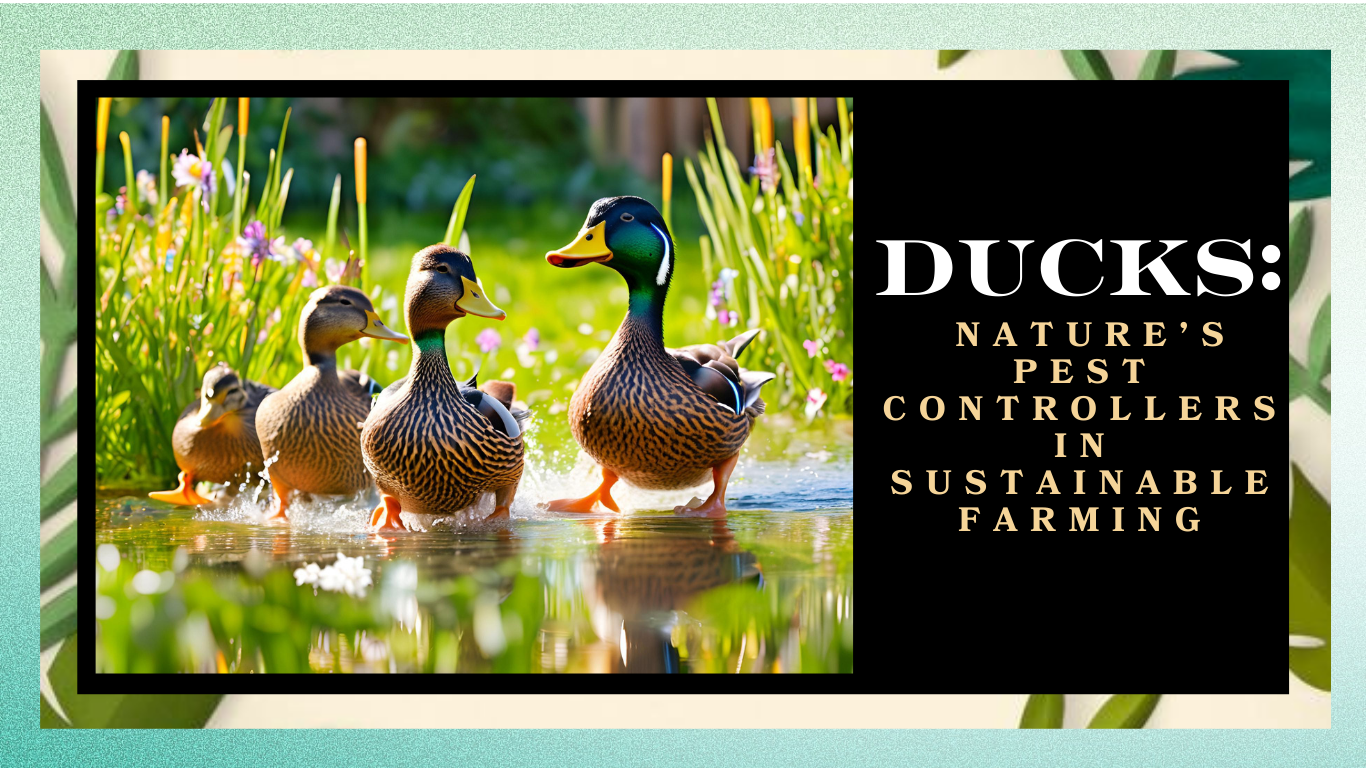Among the animals used in organic farming, there are many that are useful. One such animals is the duck and this is because they are now being used as natural ways of controlling pests such as in rice paddies and other wetland farming schemes. This practice was introduced in Asia many centuries ago is currently making a come back due to the fact that more and more farmers are looking for ways and means to get rid of chemicals for use in farming.

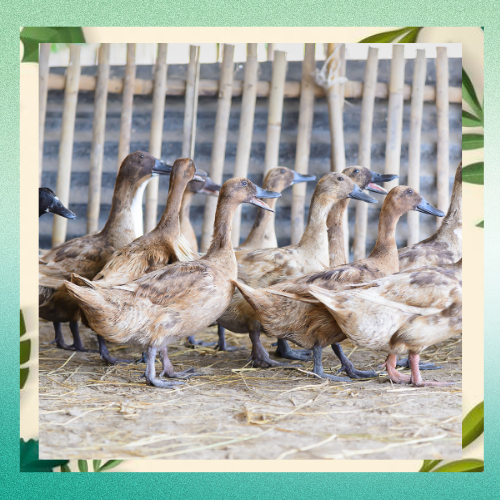
Ducks as Natural Pest Control
Among all the animals that can be used in pest control, ducks are very effective in consuming insects and other organisms that are harmful to crops. In rice paddies, one of the most destructive pests is the golden apple snail which is a devastating feeder of the young rice plants. These snails are the perfect prey for ducks and they also prey on other harmful organisms such as larvae and insects.
Besides being efficient in controlling the pests, ducks also feed on weeds, thus contributing to the reduction of the costs of weeding or the use of herbicides. While searching for food they stir up the soil with their feet which leads to better aeration of the soil and makes it more fertile. Their droppings also serve as organic manure that adds nutrients to the soil.
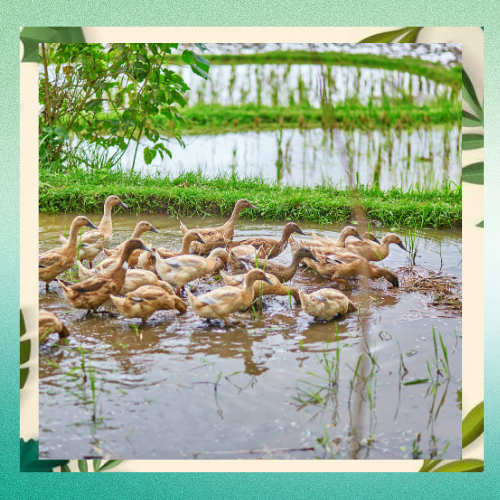
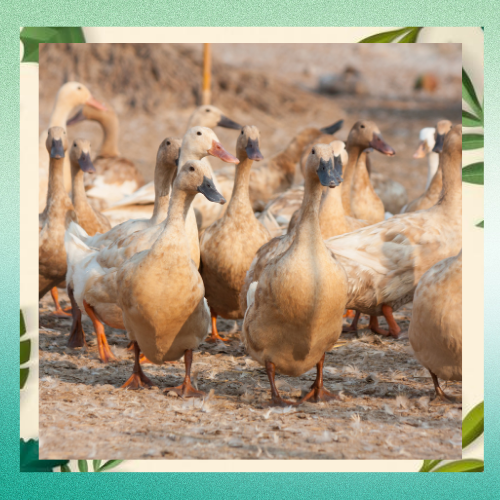
Rice duck farming is popular in many Asian countries particularly Japan and China, and has been practiced for many centuries. This traditional method is termed as “rice-duck farming” where the ducks are set free in the paddies to eat the pests while grazing around to keep the weeds at bay. This makes it yield healthier rice with minimal pest infestation and no other plants interfering.
This system works well because ducks do not injure the rice plants in any way. They go for the pests and leave the crop unharmed. Once the rice gets to this particular height it becomes impossible for the ducks to destroy and therefore the farmers can let the ducks in the paddies without having to herd them out.
This is because when using ducks in rice paddies there is minimal use of chemicals such as pesticides and herbicides hence the ecosystem around the paddy is enhanced. This in turn means that other beneficial organisms such as frogs and dragonflies are also brought back into the environment. This, in a way helps to foster a better environment that is beneficial to the well being of the farm.
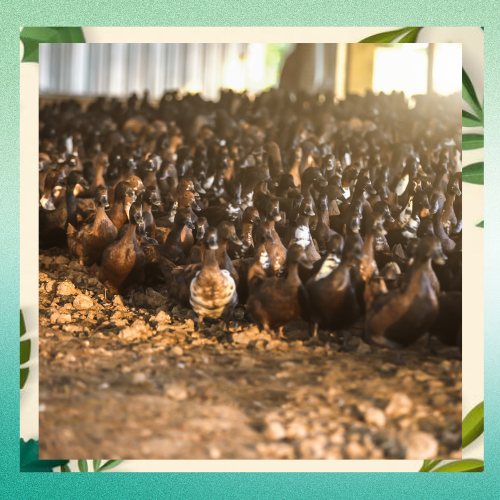
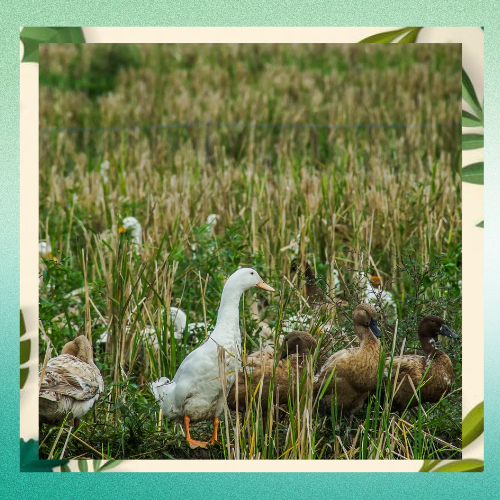
Fun Facts About Ducks
• Natural Swimmers: Ducks are known to be good swimmers and this is because they have webbed feet which enable them to swim well. This is why they are suitable in rice paddies where they can navigate through floods water easily.
• Social Animals: Ducks are very friendly animals and they are always found in a group, which can be very useful for farmers. A flock of ducks is able to work through a large area of farmland and can help with pest control by preying on the pests that are destructive to crops.
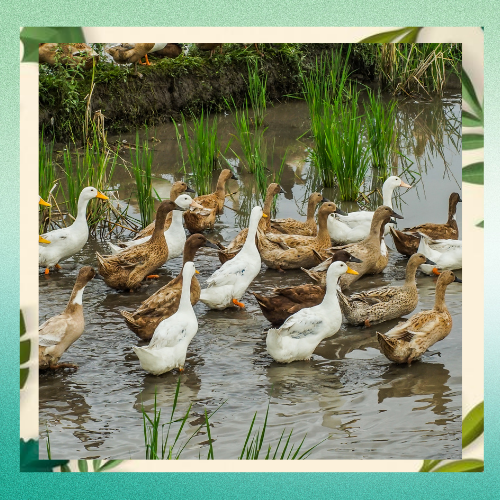
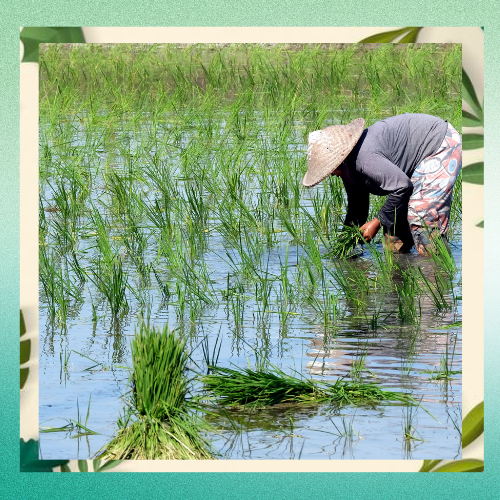
• Omnivorous Appetites: Ducks are very hungry eaters and will consume almost anything including insects, snails, small fishes and plants. Such a non-selective diet makes them adaptable to various conditions and effectively control many pests.
• Messengers of the Weather: Ducks are very sensitive to change in weather and in certain societies they are thought to bring rain or a storm. Sometimes the farmer can see the change in the ducks behavior which can be an indication of change in weather condition.
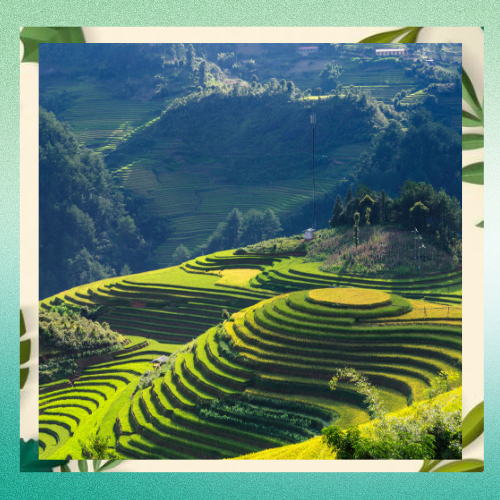
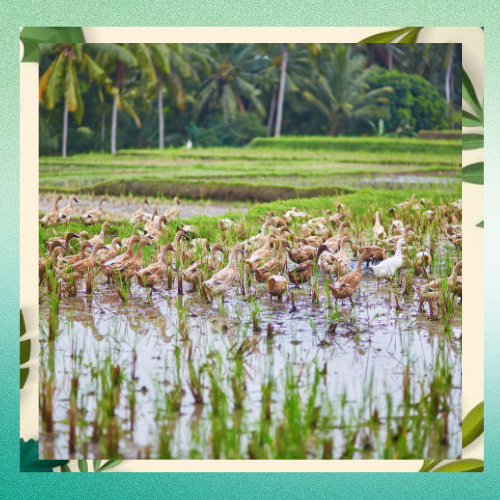
Modern Applications and Revival
The application of ducks for pest control has not been new but has been used again in the past decades especially in organic and sustainable farming. Due to the increasing pressure from the consumers for organic and eco-friendly foods, farmers are coming back to these traditional methods of farming. This form of farming is well embraced in countries such as Vietnam and Thailand since the farmers use rice-duck farming as an effective way of farming which is different from the conventional farming that is based on use of chemicals.
In some cases, ducks are also being used not only in the rice fields. It is used in vineyards, orchards and other crops where insects or snails are the main pests that can damage the plants. Ducks are quite versatile and can be used in any farming situation as long as there is water and they can graze around without destroying the crops.
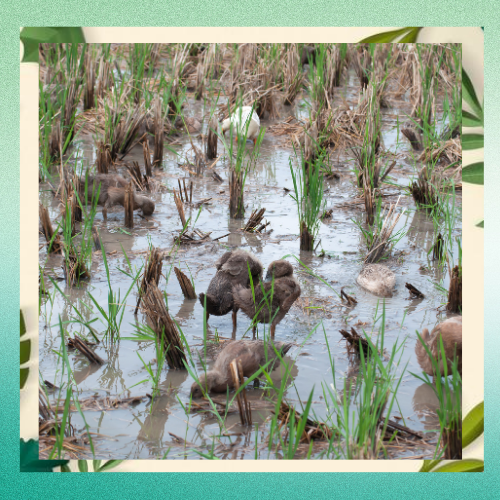
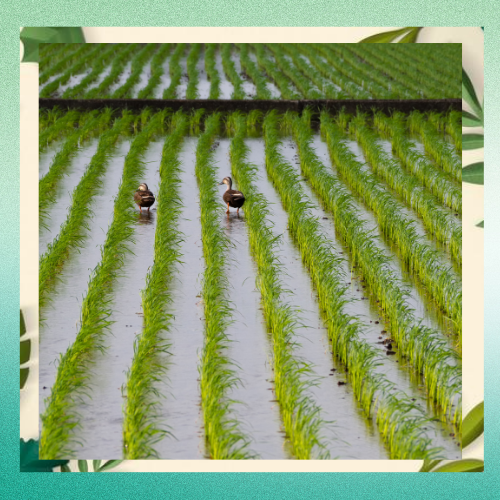
One of the reasons ducks are so effective at pest control is their persistence. Ducks will spend the entire day foraging, picking off insects, slugs, and snails as they move through fields. Unlike chemical pesticides, which target specific pests, ducks can control a wide range of pests without causing harm to the environment.
Their natural behaviors are also perfectly suited for farming environments. As ducks root around in the water or soil, they help keep ecosystems in balance. Their droppings not only fertilize the soil but also attract beneficial microbes, which contribute to overall soil health. Ducks are not only pest controllers but also key contributors to a farm’s long-term sustainability.
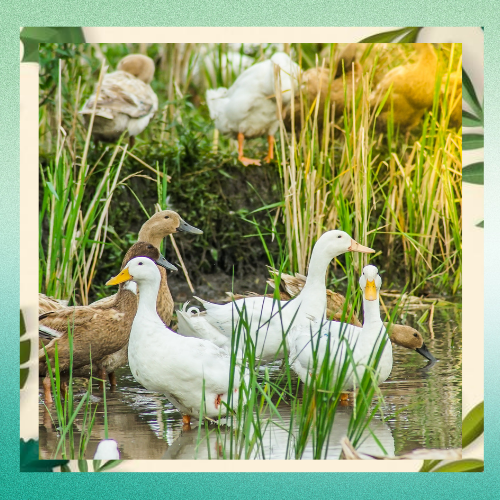
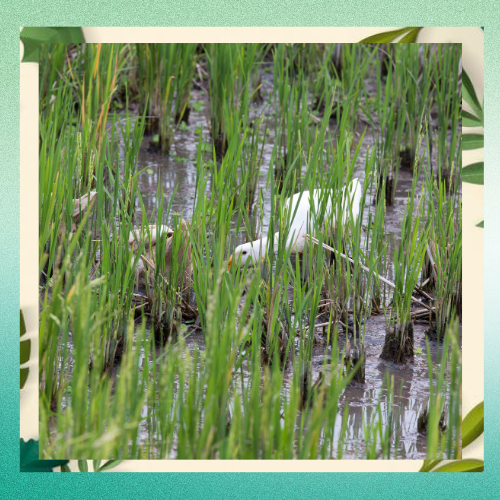
Challenges and Considerations
While ducks provide many benefits, there are some challenges to consider. Farmers must ensure that the ducks have adequate shelter and food, especially when pest populations are low. Ducks also need a reliable water source and protection from predators.
Timing is another critical factor. Ducks are most effective during specific stages of crop growth. For example, they are often introduced into rice paddies early in the planting cycle when the rice is still short. Once the rice begins to grow taller, farmers may need to remove the ducks to prevent any accidental damage to the plants.
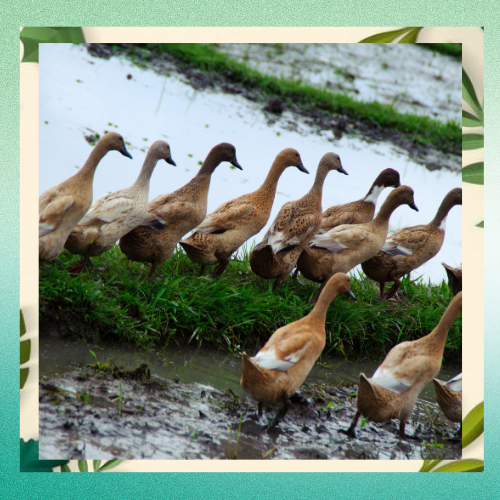
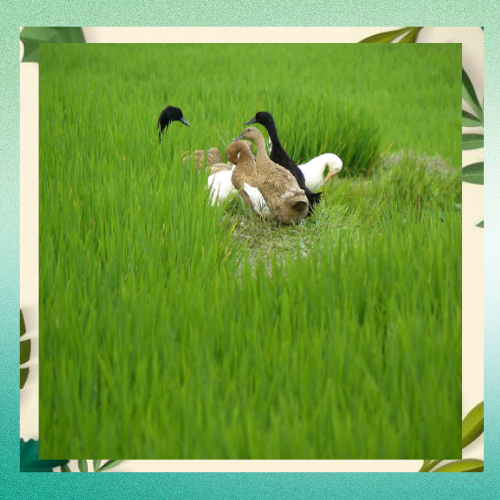
Finally, managing a flock of ducks requires some care and planning. Ducks need rest and proper nutrition, and they must be kept in healthy living conditions to ensure they remain effective at pest control. While these challenges exist, many farmers find that the benefits far outweigh the effort required.
Conclusion
Ducks offer a natural and sustainable solution to controlling pests in farming. Their ability to hunt pests, improve soil health, and reduce weed growth makes them an appealing alternative to chemical methods. Whether in rice paddies or vineyards, ducks have proven their worth as nature’s pest controllers, helping farmers achieve better yields while maintaining a healthier ecosystem.
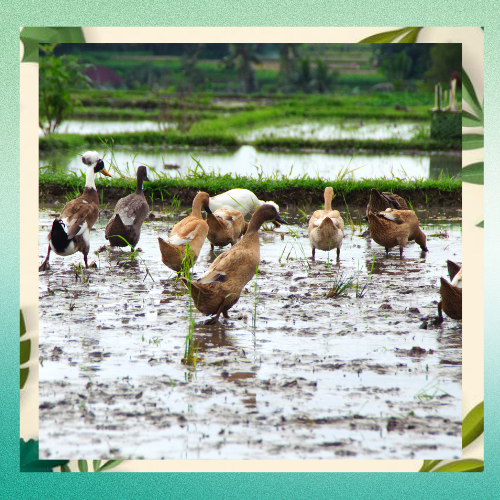
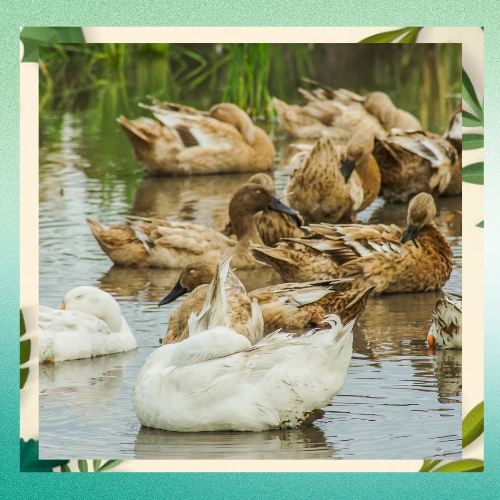
References
• THE DUCKS REVOLUTION TRADITIONAL WISDOM FOR SUSTAINABLE AGRICULTURE. http://www.ideassonline.org/public/pdf/DucksRevolution-ENG.pdf
• Effect of Integrated Rice-Duck Farming on Rice Yield, Farm Productivity, and Rice-Provisioning Ability of Farmers. https://ageconsearch.umn.edu/record/165782/?ln=en&v=pdf
• Progresses and perspective on research and practice of rice-duck farming in China. https://www.fao.org/agroecology/database/detail/en/c/885051/


